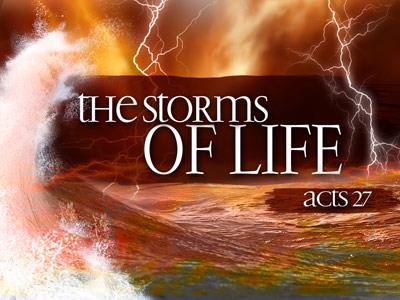-
Prescription For A Depressed Saint
Contributed by John Lowe on Aug 17, 2016 (message contributor)
Summary: Elijah was probably the most celebrated and revered of all Old Testament prophets. He lived during a time when people were chasing after false gods, worshiping idols and dabbling in all kinds of pagan and occultist stuff. God chose Elijah . . .
Friday, August 12, 2016
Prescription for a Depressed Saint
I need to tell you up front that I am an expert on this subject. I used to be ashamed and did all I could to hide it from others. But that’s another sermon. For now, just accept that I know what I am talking about.
I’ll begin by saying, “You have never locked eyes with anyone who doesn't carry around an area of brokenness.”
• It could come from their family of origin, a dysfunctional family, in which physical or emotional abuse ran rampant. Or maybe a lack of love and intimacy was craved yet never given.
• It could come from a broken marriage—one that is on the rocks, even right now—or one that already has ended.
• It could come from a moral train wreck you steered yourself into, and now you carry the weight of guilt and shame.
• It could come from being rejected as a child—maybe due to being overweight, the one who didn't make good grades, the one who never was popular—and was teased, bullied and now carries the relational scars to this day.
• It could come from a crisis of faith. A God they thought was loving and kind, when seemingly He allowed the unspeakable to invade their lives.
• It could come from the guilt created by some sinful act or habit or addiction.
Everybody is broken, somehow, somewhere—including you. I don't know where you are broken. I don't know how you are broken. I don't know if you're in touch with your brokenness. I don't know for how long you've felt broken; I only know that if you're a human being, you have some broken places. So do I. So where is God in our brokenness? Is God only for the holy, the ones who have it all together, the ones with…
• the perfect credit scores,
• unblemished driving records,
• tension-free marriages,
• valedictorian kids,
• successful careers, and
• who walk around with their Sunday smiles and their golden halos?
Or is He the God of the…
• divorced,
• grieving,
• confused,
• beaten,
• failures?
Is He the God of the…
•weak,
• the God of those who've been arrested,
• the doubting,
• the abused,
• the lonely,
• the rejected?
Do we have a God of the broken? The Bible gives a clear answer. It's one that courses through every page, every event, every story, every lesson. There's one passage that captures it, at least for me, and it's in Psalm 103 of the Old Testament. Let me read it for you:
"The Lord is compassionate and merciful, slow to get angry and filled with unfailing love. He will not constantly accuse us, nor remain angry forever. He does not punish us for all our sins; He does not deal harshly with us, as we deserve. For His unfailing love toward those who fear Him is as great as the height of the heavens above the earth. He has removed our sins as far from us as the east is from the west. The Lord is like a father to His children, tender and compassionate to those who fear Him. For He knows how weak we are; He remembers we are only dust" (Ps.103:8-14).
This is a God who knows how weak we are, who knows we are dust. This passage applies meaning to our lives in some very specific areas of brokenness.
We begin today with a man who was dealing with something millions of people deal with, and I know a lot of you do: depression. This was not just a mild case of the blues; the man we're going to be looking at reached a point of complete emotional exhaustion, leading to severe depression and thoughts of suicide.
I don't know if you've ever been there, but take a test with me. I'm going to list 10 feelings. As I go through these 10 descriptors, keep a mental list silently in your head of how many of these you can say yes to having experienced yourself. When I describe these, are there ones you can say you have experienced or have felt this way for as little as a two-week period? Just keep a tally in your head. Ready?
1. Persistent sad, anxious or empty mood. Yes or no?
2. Loss of interest or pleasure in activities, including sex. Yes or no?
3. Restlessness, irritability or excessive crying. Yes or no?
4. Feelings of guilt, worthlessness, helplessness, hopelessness, pessimism. Yes or no?
5. Sleeping too much or too little, early-morning awakening. Yes or no?
6. Appetite and/or weight loss, or overeating and weight gain. Yes or no?
7. Decreased energy or fatigue, feeling slowed down. Yes or no?
8. Thoughts of death or suicide or suicide attempts. Yes or no?

 Sermon Central
Sermon Central



